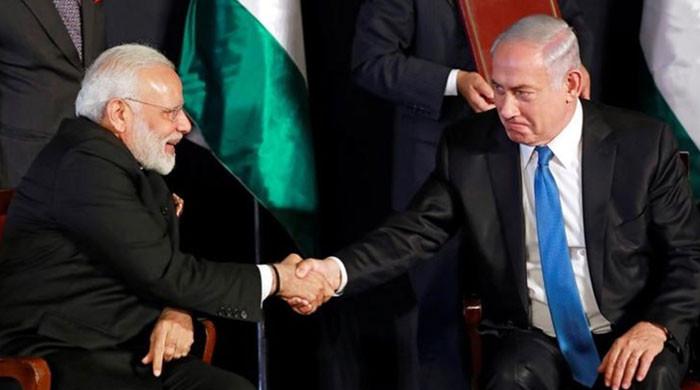Spring 2025 witnessed two wars of aggression: the strikes of India in May against Pakistan and the attacks of Israel against Iran in June. The causes, trajectories and results of the two wars were very different, but there are similarities that deserve recognition and response.
One, both of them constituted a unilateral use of the force in violation of the Charter of the United Nations and of international law. Two, the two attacks were undertaken on the basis of a false and “built” casus.
Three, the underlying objective of the two was to establish regional hegemony respectively-in South Asia and the Middle East. Four, the two attackers are states that occupy, oppress and respectively deny the self -determination of occupied peoples – the Kashmiris and the Palestinians.
Five, the extremist leaders of the two states expressed their hatred of Muslims (the Israelis calling the Palestinians “human animals” and the Indians calling them “cockroaches” and other epithets).
Six, India and Israel have encouraged each other in their respective assaults. Seven, their modus operandi – sabotage, infiltration, disinformation, assassination, air strikes – are almost identical. Eight, above all, the two are military allies, providing each other with weapons, technologies, intelligence and operational support.
Although Pakistan has scrupulously abstained from being militarily involved in the Arab-Israeli and Irano-Israelis conflicts, Israel has not reversed this restraint. His role in helping the occupation of the cashmere of India is no secret; Israel is one of the main providers of Indian weapons.
Israeli drones were used to attack Pakistan in May. The Israeli Prime Minister said that Israel’s objectives are: “First Iran, then Pakistan”.
It is now largely reported that Indian staff in Iran acted as Israeli agents who have enabled the targeted assassinations of Iranian military commanders and nuclear scientists and the bombing of its nuclear and military installations.
A few years ago, Qatar granted death sentences to eight members of the Indian Navy staff who spy on Israel. The extent of Indian-Israeli infiltration and malicious software in the Arab countries must be presumed extended.
Pakistan must learn from Iran’s experience and recent events. Among other stages, Islamabad must fully protect its strategic capacities and installations, ensure against hostile infiltration by an intensive personnel verification and further improve its defenses against missiles, drones, electronics and other attacks at the sub-convention, conventional and strategic levels.
It is also essential to protect yourself against the offer or acceptance of concessions in future negotiations with India or others which could lead to compromising the strategic capacities of Pakistan or its sovereign right to develop any essential capacity to maintain full spectrum deterrence.
As illustrated in the four -day war with India, Pakistan’s strategic cooperation with China’s “Brother” iron “remains essential to ensure a sustained and credible defense of the complete spectrum against India or other external threats.
This strategic cooperation must continue and extend to all areas of the mutual security problem. Promoting good relations with other powers should never be authorized to compromise this strategic relationship with China.
Pakistan and everyone Islamic must take note of this axis of oppression. There is already an agreement that Israel must be held responsible for its genocide in Gaza. All stages towards standardization with Israel must be conditional to the creation of a Palestinian state.
Similarly, India must also be held responsible for its crimes in Jammu-et-Cachemire for illegal occupation (IIOJK) and its unilateral use of force against Pakistan. And the global community should be mobilized to convince
India has resolved the cashmere dispute in accordance with the resolutions of the UN Security Council and to respect the Water Treaty in the Indus.
In the light of recent revelations, the Arab and Muslim countries would be wise to review their cooperation with India, especially in the defense and information sectors. They should build the organization of Islamic Cooperation Security Architecture (OCI) – as proposed by Pakistan – to mobilize mutual support. The proposal for regional security arrangements, advanced by Iran, also deserves close consideration.
Finally, Pakistan and countries sharing the same ideas must act to reconstruct the legal, political and moral defense against the aggression and unilateral use of force and advance the concept of equal and indivisible security for all states.
To this end, the proposals could be put forward at the UN and elsewhere for the adoption of: a treaty reaffirming the principle of non-use or threat of force; The free zone of nuclear weapons Me and the International Convention on Negative Security Insurance in non -nuclear weapons (proposed by Pakistan).
The writer, a veteran diplomat, is a former permanent representative of Pakistan at the United Nations.
Warning: The points of view expressed in this play are the own writers and do not necessarily reflect the editorial policy of PK Press Club.TV.
Originally published in the news




